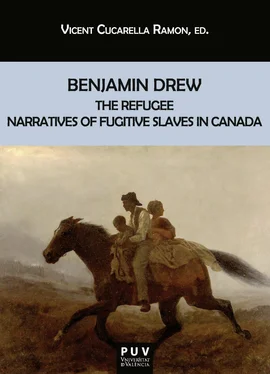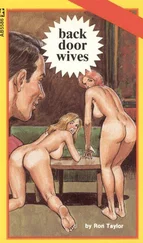Vicent Cucarella Ramón - Benjamin Drew
Здесь есть возможность читать онлайн «Vicent Cucarella Ramón - Benjamin Drew» — ознакомительный отрывок электронной книги совершенно бесплатно, а после прочтения отрывка купить полную версию. В некоторых случаях можно слушать аудио, скачать через торрент в формате fb2 и присутствует краткое содержание. Жанр: unrecognised, на английском языке. Описание произведения, (предисловие) а так же отзывы посетителей доступны на портале библиотеки ЛибКат.
- Название:Benjamin Drew
- Автор:
- Жанр:
- Год:неизвестен
- ISBN:нет данных
- Рейтинг книги:3 / 5. Голосов: 1
-
Избранное:Добавить в избранное
- Отзывы:
-
Ваша оценка:
- 60
- 1
- 2
- 3
- 4
- 5
Benjamin Drew: краткое содержание, описание и аннотация
Предлагаем к чтению аннотацию, описание, краткое содержание или предисловие (зависит от того, что написал сам автор книги «Benjamin Drew»). Если вы не нашли необходимую информацию о книге — напишите в комментариях, мы постараемся отыскать её.
Benjamin Drew — читать онлайн ознакомительный отрывок
Ниже представлен текст книги, разбитый по страницам. Система сохранения места последней прочитанной страницы, позволяет с удобством читать онлайн бесплатно книгу «Benjamin Drew», без необходимости каждый раз заново искать на чём Вы остановились. Поставьте закладку, и сможете в любой момент перейти на страницу, на которой закончили чтение.
Интервал:
Закладка:
It may possibly be the case that the denunciatory language which the South has used in speaking of abolitionists, may have “irritated” them, and that, under this irritation, they have manifested more zeal in the cause of emancipation, than they would otherwise have done. Still we deem it undeniable, that if there is any situation on earth in which a man can be placed, which should stir up from its depths, the most active sympathies of the human heart, it is the deplorable situation of an American slave.
If these things are so, how can it be wrong to assist a slave who is making his escape? Surely, to aid the unfortunate is a duty, which no power on earth can legislate into a crime.
But at this late day, the question is forced upon us, whether it is an unfortunate thing for a man to be a slave? This “excites a smile” at the North,–but as this book is destined to be read at the South as well as at the North, we will examine the question a little.
Slavery, we are told, has its bright as well as its dark parts. In southern cities, there is good order, the streets are quiet in the night, and there is an absence of mobs. In that portion of southern society which is under the highest cultivation, the slaves smile, laugh, are happy,–one must see that they are happy. Religion has gained a wonderful ascendency among the colored people. The number of communicants among them is very large. “The only difference between them and us, as to religious instruction is, they cannot generally read.” “As responsibility, anxiety about the present and future, are the chief enemies to cheerfulness, and, among mental causes, to health, it is obvious that if one can have all his present wants supplied, with no care about short crops, the markets, notes payable, bills due, be relieved from the necessity of planning and contriving, all the hard thinking being done for him by another, while useful and honorable employment fills his thoughts and hands, he is so far in a situation favorable to great comfort, which will show itself in his whole outer man. Some will say, ‘This is the lowest kind of happiness.’ Yet it is all that a large portion of the race seek for; and few, except slaves, obtain it.” “If the colored people of Savannah, Columbia, and Richmond, are not, as a whole, a happy people, I,” says the reverend author from whom we quote, “have never seen any.” We are told, indeed, that “Cases illustrating the opposite of almost every agreeable statement now made could also be multiplied; still the things just described are as represented, and he is not in a healthful state of mind, who cannot appreciate them. Our error has been in mixing the dark and bright parts of slavery together. This is wrong. We should never lose sight of distinct moral qualities in character, as we do of different colors in mixing paint. Let us judge slavery in this manner; let us keep her different qualities distinct–abhor that in her which is evil, rejoice in that which is good.”
Damocles sits at the royal banquet, surrounded with gold and silver plate; the table is loaded with delicacies of every kind. “Happy fellow that Damocles,” says Mr. South, “he is in a broad laugh!”
“Yes;” answers Mr. North, “but look–do you not see that glittering sword hanging over his head by a single hair?”
“Never mind the sword,–you are mixing together the bright and the dark. This is wrong. Let us, at present, consider only the dinner. What splendid fare! Judging from the gold and silver plate, from the chaplets of roses, from the handsome pages about him, from the mingled flavors of the roast and the boiled, and from the appetite of Damocles himself, one must see that he is a happy man.”
“If he is happy it is either because he is ignorant of his condition,–or knowing ‘the day of trouble and of treading down,’ he has adopted the philosophy spoken of by the prophet, ‘let us eat and drink, for tomorrow we shall die.’ As happy as Damocles appears, there is the sword,–who would want a good dinner with such an accompaniment?”
“You are wrong. The dinner is good–let us rejoice over that. Damocles fares well. It is a pity that the hungry, dirty, rascally, riotous Celts cannot have just such a dinner every day at the table of Dionysius. Now we will examine the sword a little–but let us handle it gingerly.”
If slavery causes an “absence of mobs,” let slavery have all due credit on that score. Give it joy that it prevented the destruction of Cassius M. Clay’s press, the murder of Lovejoy, the expulsion of Judge Hoar, the lynching of Amos Dresser, and the thousand and one acts of violence and outrage which have caused some unreflecting men to deny that the South is tenanted by a civilized people: more recently that it prevented a mob of armed Missourians from interfering in the Kansas election, and spared the office of the Parkville Luminary. We presume that the absence of mobs of colored persons must have been intended.
A strong police must watch the motions of the oppressed–prevent them from meeting together unless some of the oppressors are present–keep them in their quarters at night, etc. This system of police usually answers its atrocious purpose very well. It wields the lash against offenders, and instils into the oppressed the fear requisite to suppress any overt act toward gaining their rights as human beings. Incidentally, it hinders the commission of crimes, prevents mobs [of colored persons], and keeps the streets quiet, and is so far beneficent in its action. Yet it cannot be denied that the cause of liberty in the world has been much indebted to mobs.
“Oppression driveth a wise man mad.” The oppressed, then, must not be made wise. If they do not know that a laborer can be a free man, the thought of freedom for themselves will not, perhaps, enter their heads. If they can be raised , so ignorant as to believe that slavery is the proper and natural condition of their being,–that they cannot take care of themselves, they will probably, be contented with their lot. The more infantile their minds are suffered to remain, the less will they comprehend the absolute wretchedness of their estate; the less opportunity will they have to learn of lands where all are free,–the less capable will they be of putting forth exertion to resist oppression or to escape from it. The intention of the slave-holders in this respect, seems to be approximately realized. Unaware of the delights of mental cultivation, of the proper growth and expansion of the human soul, many of the oppressed class will appear in good humor and often in a “broad laugh.” The manhood of this portion of the sufferers has not, indeed, been “crushed out of them:”–it has never been developed. They are little children in every thing but bodily maturity. “The slaves in Savannah,” says Patrick Snead, a fugitive slave from that city, “are poor, ignorant creatures,– they don’t know their condition .”
A class of men retained in the lowest form of bondage, hopeless of any thing higher and better on earth,–at the best dividing their earnings with masters, but more often urged to hard and prolonged labor, through the influence of fear,–incapable of obtaining any degree of cultivation or dignity here below,–will be peculiarly interested in representations of a better life hereafter. A religion which insists on obedience to masters and mistresses, and which inculcates forgiveness of injuries, will find many teachers among those whose domestic cares lessen, and whose profits rise in proportion to the number of proselytes, and whose codes legalize the grossest wrongs: a faith which promises heavenly rewards to humility, obedience, and patience,–which admonishes him that is smitten on one cheek to turn the other also, will find many converts among those who are glad to escape a sense of their indignities and incessant humiliations, by believing that servility itself is a Christian grace. “Suppose a family [of slaves] bound to their master by affection and respect. Whatever he can make appear to their understandings and consciences to be right, he has as much power to enforce upon them as ever falls to the power of moral suasion.” “If the numbers of pious slaves are an indication, it must be confessed that slave-owners, as a body, have performed their Christian duties to their slaves to a degree which the masters of free apprentices and the employers of free laborers have as yet hardly equalled.” What knowledge the slaves have of the Scriptures is obtained by the ear, for “they are generally unable to read.” While we would hope that many among the class of oppressors are faithful in proclaiming the whole counsel of God, it must be admitted that there is a strong temptation on the part of the masters to use the Scriptures mainly as an auxiliary to the overseer.
Читать дальшеИнтервал:
Закладка:
Похожие книги на «Benjamin Drew»
Представляем Вашему вниманию похожие книги на «Benjamin Drew» списком для выбора. Мы отобрали схожую по названию и смыслу литературу в надежде предоставить читателям больше вариантов отыскать новые, интересные, ещё непрочитанные произведения.
Обсуждение, отзывы о книге «Benjamin Drew» и просто собственные мнения читателей. Оставьте ваши комментарии, напишите, что Вы думаете о произведении, его смысле или главных героях. Укажите что конкретно понравилось, а что нет, и почему Вы так считаете.











![Benjamin Franklin - Memoirs of Benjamin Franklin; Written by Himself. [Vol. 2 of 2]](/books/747975/benjamin-franklin-memoirs-of-benjamin-franklin-wr-thumb.webp)
![Benjamin Franklin - Memoirs of Benjamin Franklin; Written by Himself. [Vol. 1 of 2]](/books/748053/benjamin-franklin-memoirs-of-benjamin-franklin-wr-thumb.webp)